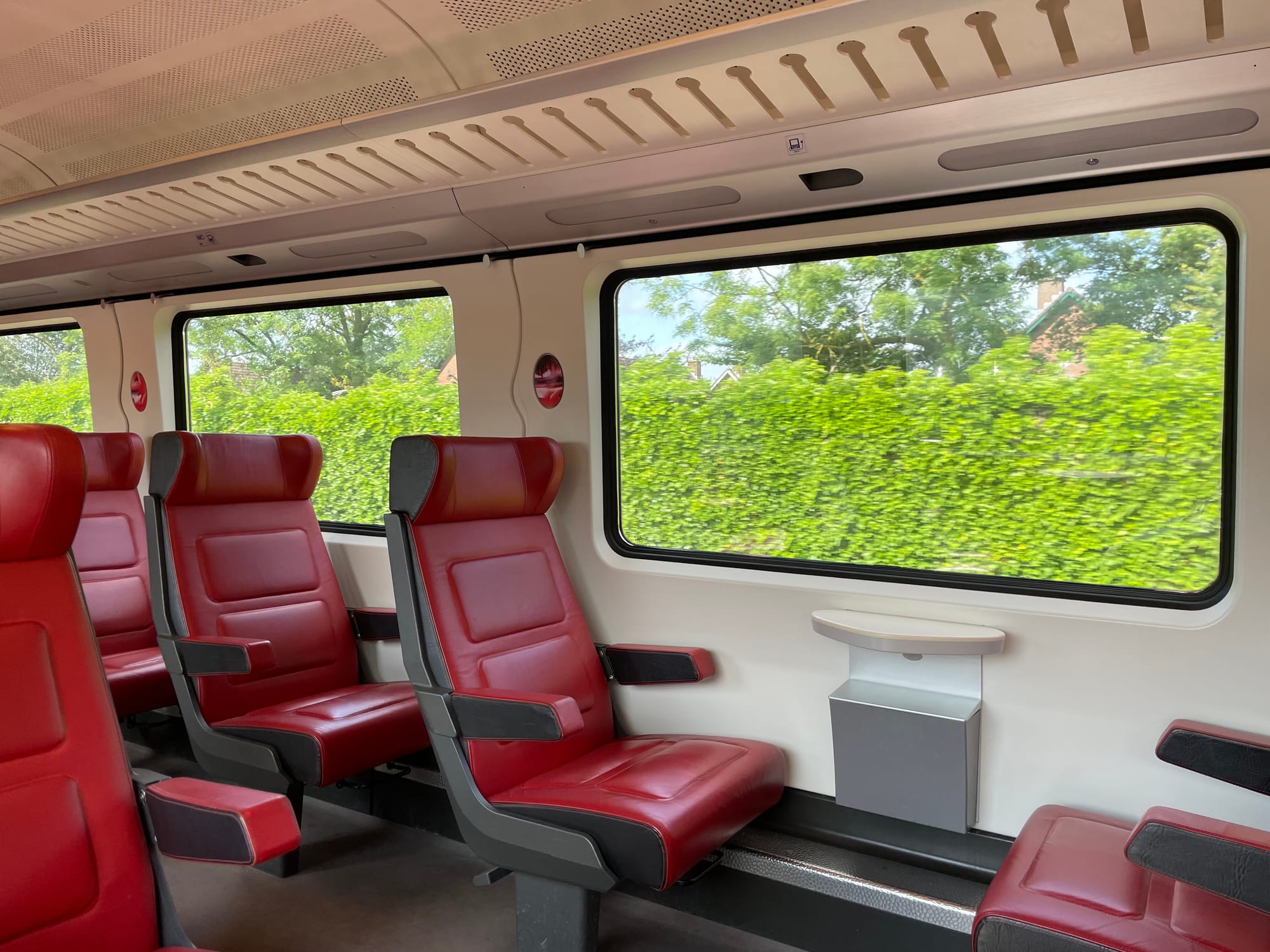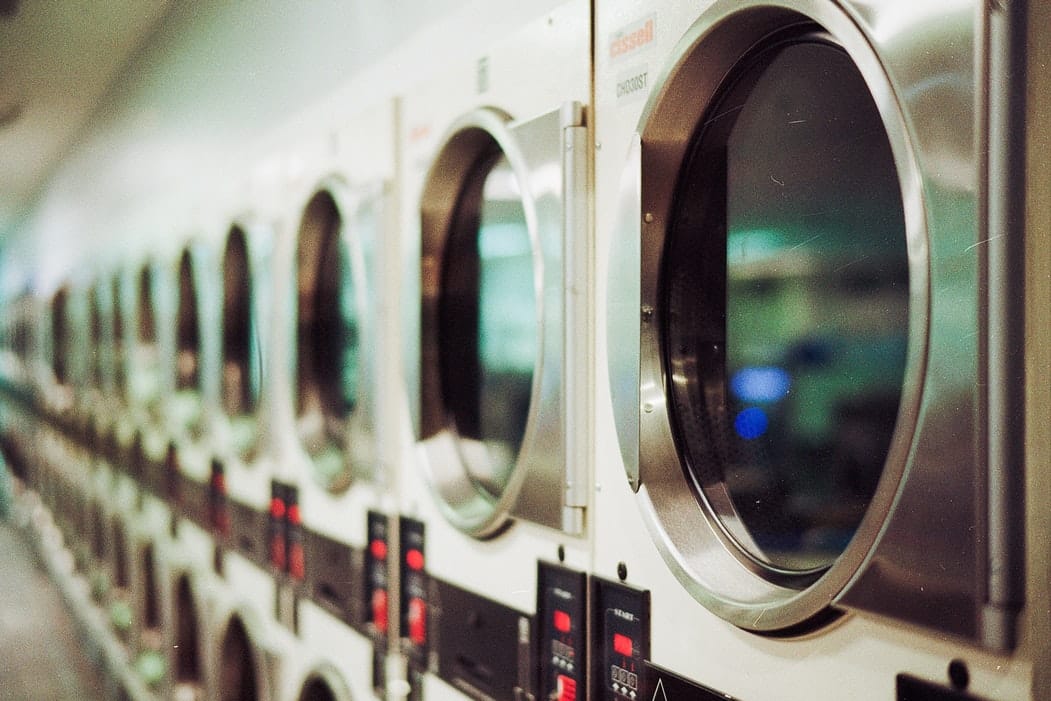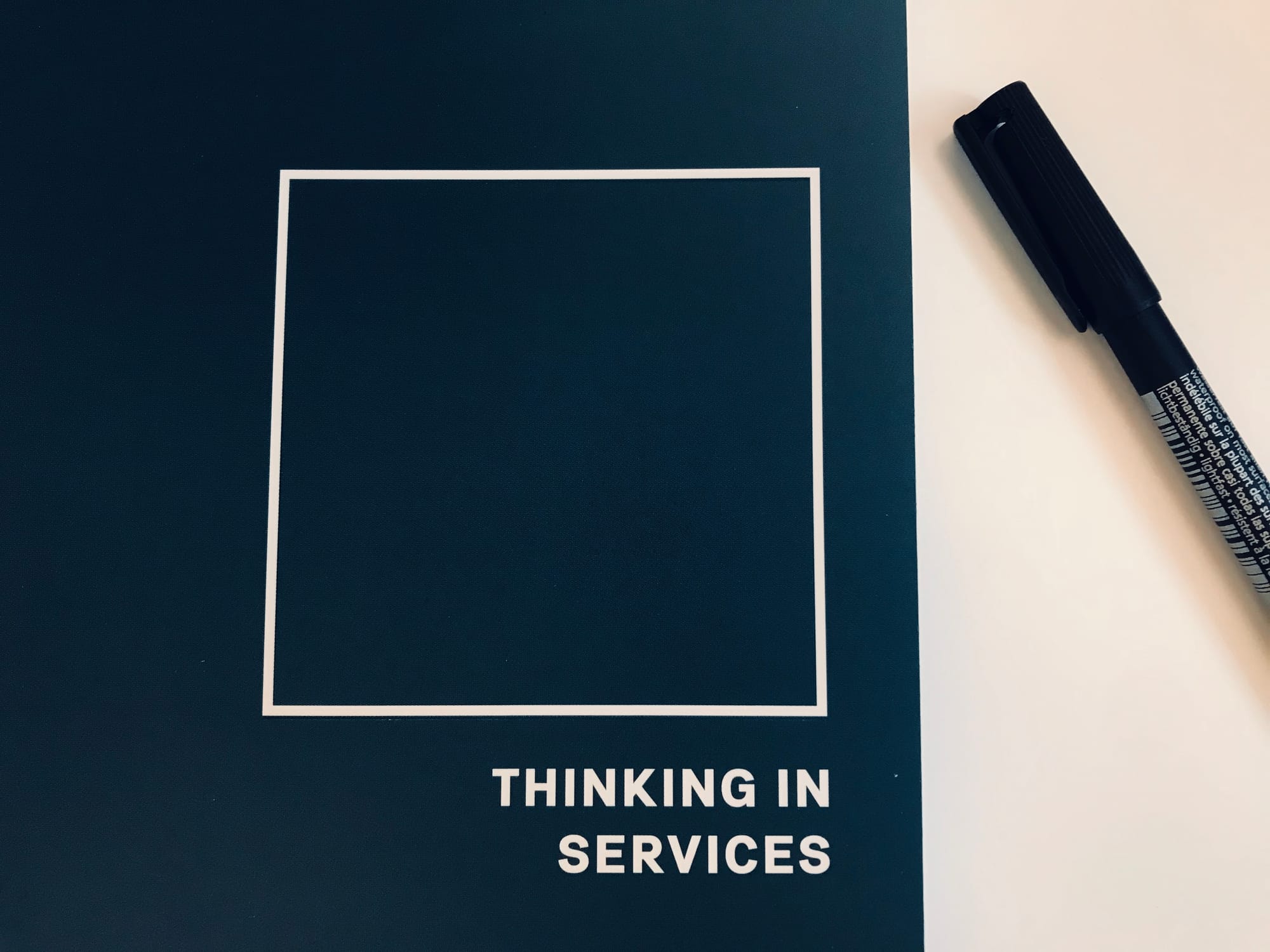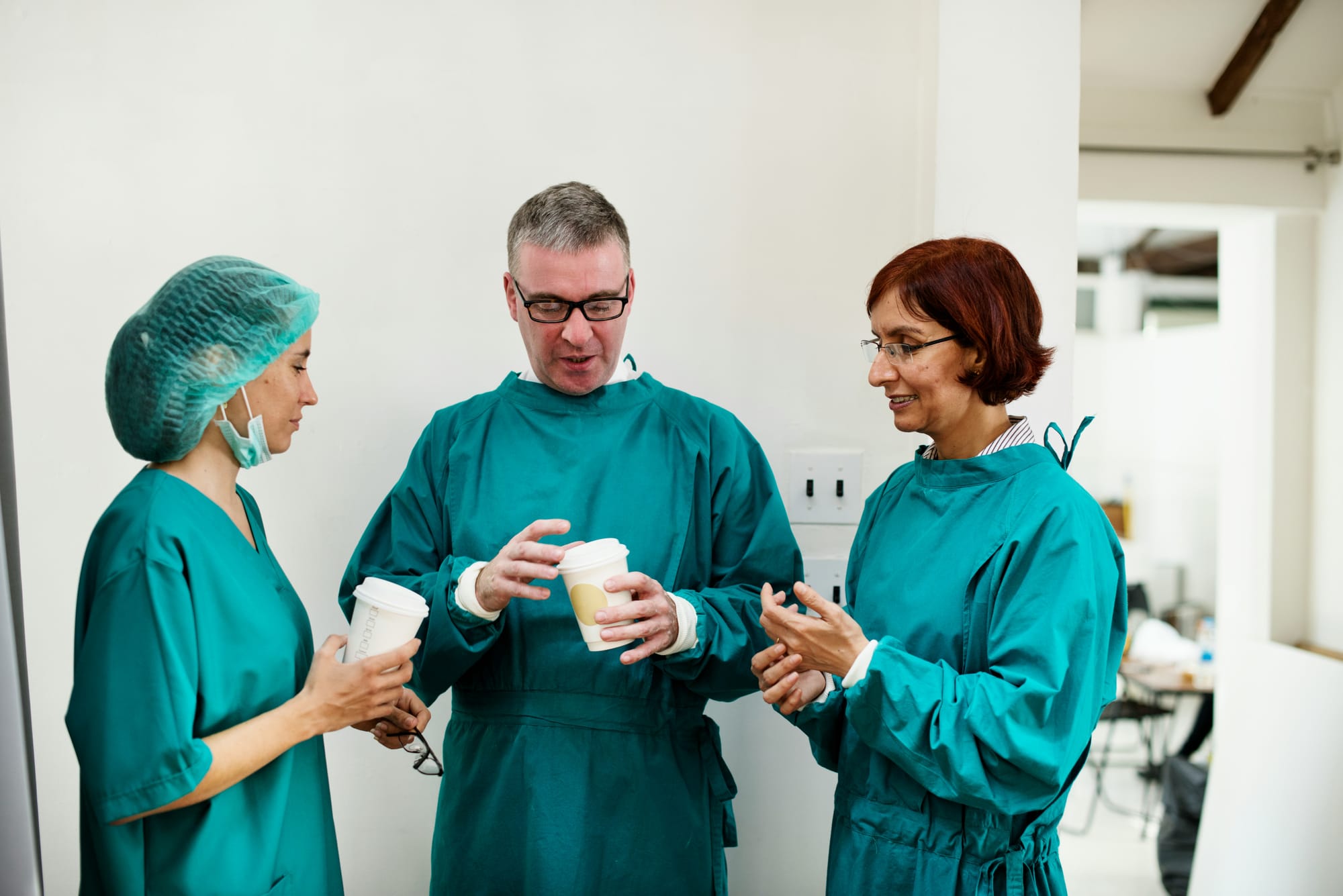This piece is an excerpt from my 2018 book, Thinking in Services.
Ask six experts what a service is and they may give you six different explanations that are not wrong and then argue over the words. Ask them what ‘water’ is and they may at least agree it is H2O. They may even explain why water behaves in the many different ways it does, because of two hydrogen atoms forming a covalent bond with a single oxygen atom. Such scientific knowledge leads to solutions such as steam turbines, water picks, and hydrofoils. If water ‘fails’, we have a solid basis to find out why. There aren’t such scientific definitions for ‘service’. Even legal definitions are lacking, going back to the times when services were a form of ‘consideration’ that tenants paid feudal lords. At one level, it may not matter. Everybody sort of knows what services are about. However, the answer to the question “What is even a service?”, can become important when, every now and then, we face the challenge of developing a new concept for a service, developing or improving a design, or figuring out why a service keeps failing. Then we sort of don’t know.
To help us develop a fresh understanding, we enlist the help of two professional skeptics: Thomas Doubting and Jerry Maguire. Give them any idea or concept and they will criticise it. Like cable TV analysts, they are paid to get into loud arguments, but ones that lead to a better understanding. So, here’s how it works: we start by making a simple statement about services, they criticise it, and we modify the statement. They will then challenge us again. This ensuing back-and-forth will lead us to a new understanding which we then carry further.
“Services fulfil a set of needs.”
Tom: Oh, come on. Give us something.
“Services are performances that fulfil a set of needs.”
Tom: Ok, they perform an activity that satisfies a set of needs.
Jerry: But it’s not just performances is it? Services also make things available to us. For example, the goods on shelves of a grocery store, office space for rent, or a seat on the tram that will take me somewhere. Availability matters more than any activity itself.
Tom: Wait, moving people is clearly a performance.
Jerry: I don’t care how moving the performance may be, if there isn’t a seat for me, or if it is going to be too long of a wait before the next ride, or if my destination is not even on the route. As Lucius Burckhardt said, “It is not the tram that makes transportation a successful experience. It is the schedule.”

Tom: Lucius who?
Jerry: He was a Swiss sociologist and economist. You should read more.
Tom: I agree. Not about the reading more often, but about services being more than just performances. When I borrow money, it’s the loan amount and period that matter, not the lending process.
“Services are performances and affordances that fulfil a set of needs.”
Jerry: That’s interesting. I like the idea of using ‘affordance’ to describe services, especially if it is the Gibson …
Tom: Affordability?
Jerry: No, not affordability. A-F-F-O-R-D-A-N-C-E. To afford means to offer, to provide, to make available, to allow, to furnish or supply …
Tom: You mean …
Author: Let him finish.
Jerry: Thank you. Yes, Tom, please afford me the opportunity of finishing my sentences. Provide me silence. Allow me to explain that to afford also means to accommodate someone or something within an environment. For example, when you rent a safe deposit box or locker at a bank, you are given access to a container for you to store your valuables in. From being situated within the bank’s vault, the space inside the locker is part of a secure environment. The bank goes to the necessary lengths to protect the vault. Therefore, anything the account holder places inside the locker affords a certain level of security. The larger the locker, the greater the affordance. Every layer of protection the bank applies to the vault, including fire protection, increases the affordance in proportion to the space inside. Since it is not possible to open the locker without the account holder's private key, privacy is also a part of the affordance.
Tom: But transportation.
Jerry: When you purchase a ticket for the tram, it first gives you access to the entire schedule. It allows you to board any tram you want, or the next available one. Then, the ticket allows you to occupy any available seat or standing space, except the driver’s seat of course. There are seats reserved for the disabled, the elderly, and the pregnant. Those are affordances themselves, as are the areas marked for bikes, strollers, and luggage. Affordances within affordances bundled together and paid for by a single ticket.
Tom: That is why airlines are able to unbundle offerings, charging you separately for seats and checked baggage.
Jerry: Yes, in a way. Affordances can also be sold in terms of which seat a passenger can occupy, in which cabin or class of fare. There are restrictions on how much you can bring on board in terms of weight and dimensions, and what you are not allowed to carry as per the regulations. Therefore, inherent in the concept of affordance are degrees, limits, and restrictions, because of the costs and risks incurred by the environment.

Tom: So, when a bank lends me money, their balance sheet accommodates the risk and carries my debt.
Jerry: That’s a good leap. The same is true of risk pools in insurance. It is what services do: Assume certain costs and risks inherent in demand. Hotels have policies that deter guests from smoking in rooms during their stay. Car rental companies require some form of collateral. It is a fair deal. Once their needs are met, customers get to walk away from it all without further obligations.
“Services are performances and ....”
Tom: I get it. Affordances are the basis of pricing service options. For example, how many gigabytes of data I’m allowed per month, or how many miles a year on a leased vehicle. I also get how when I can’t afford to pay for something, it means my budget doesn’t allow for it.
Jerry: He is a quick learner …
Tom: I have the capacity for abstract thought.
Jerry: O’ Brother …
Tom: Okay … moving on.
“Services are performances and affordances that fulfil a set of needs.”
Jerry: Pithy!
Tom: Pity it doesn’t clarify something very important. Allow me to explain. I have a washing machine at home I throw dirty laundry into. Then, upon my command, this appliance washes my clothes for me without complaint. The washing, rinsing and spinning offers the performance. The capacity of the drum and the various wash cycles form the affordance, including the convenience of the machine being situated at home. I have access to it any time I want. The machine fulfils a set of needs: cleaning my clothes quickly and thoroughly enough without causing damage to the fabric. But that doesn’t make it a service for two reasons in my opinion.
Jerry: And those are?
Tom: First, I bear all the costs and risks of owning and operating the machine. I supply the electricity, water and detergent. If the machine breaks down for some reason, I have to take care of the maintenance. When the machine is idle, it takes up valuable space. Second, even though I don’t pay the machine for the work, it doesn’t have a choice but to serve me. That is servitude, not a service. In contrast, a coin-operated laundry machine provides a service because I pay for the wash cycles I use, and the machine can refuse to operate without payment. The hardware of the coin mechanism implements the primitive ancestor of a smart contract.

Jerry: So, in theory, if a company were to own the machine in your house with a mechanism that tracks usage and charge you for it, you’d consider it a service.
Tom: Yes. In that scenario they would also supply detergent, perform maintenance, and replace the machine, say every two years, for me to take advantage of technological advances. The service may not be economically viable for them, unless perhaps it also includes subscriptions to the oven and fridge. The appliances themselves aren’t that expensive to own and operate compared to an automobile.
Jerry: Getting back to the statement, what simple change are you proposing to indicate whether there's some form of payment or consideration?
Tom: I suggest we include a reference that implies there is some form of payment or consideration in cash or in kind. That way the statement is true of services offered free of charge such as Google, Facebook and Twitter although I don’t think their “users” are in fact customers.
“Services are performances and affordances that fulfil a set of customer needs.”
Tom: That will do.
Jerry: Hmm. What about experiences? They are a defining characteristic of services.
Tom: Perhaps you are right, but I think it is more important to emphasise outcomes. What am I buying when I pay for that tram ticket? Being somewhere within a certain timeframe. The experience of riding the tram is what I have to go through to get there. I would like that to be a good experience but more than that I’d appreciate the outcome. Every centimeter the tram moves toward the destination, I get a bit closer to what I paid for. I wouldn’t travel further than my destination just because it is a good experience.
Jerry: But the experience matters a lot. Say the next tram is about to arrive, and within 30 seconds I am able to quickly purchase a ticket at the tram stop, because they make it effortless. There are ticket machines, which accept several forms of payments. A smartphone app makes it very easy to know if that’s the tram I should be hopping on. No more missing the tram from still trying to figure that out, by asking around, or by trying to read from a printed schedule or map. I agree the outcome I am paying for is being somewhere, but the journey needs to be safe and comfortable as well. The spaciousness of the tram car, the seats, the grips, the windows, the lighting, and even the shocks. Otherwise, I wouldn’t want to ride the tram at all. I’d call a cab or something.
Tom: In this example, the “things” being transported are people with feelings and memories of similar experiences. Their subjective evaluation of the travel experience can get conflated with that of the outcome. Whereas when we ship a package, we limit our evaluation of the experience to the sending, receiving, tracking, and paying for the shipment. We don’t ask the thing we shipped inside the package how good its travel experience was.
Jerry: Outcomes are what you pay for and experience is what you pay with. If the experience is better than expected, then it feels like a discount or rebate.
Tom: Yes. I don’t get what I paid for if the tram doesn’t take me to my destination within a certain timeframe. The tram arrives on time, not just for the people waiting to step in, but more importantly, for those stepping out. I think that’s why your friend Lucius emphasises the schedule in that quote, although he should have used the word “outcome” instead of “experience”. More than linking places across the city, what the schedule does is linking time slots and offering thousands of combinations that coincide with thousands of people's daily journey.
Jerry: So, where are we then?
“Services are performances and affordances resulting in outcomes that fulfil a set of customer needs.”
Jerry: As long as it doesn’t seem like we are downplaying the importance of the quality of experience.
Tom: But we are not, and I believe people are smart enough to know what is implied or left out.
Jerry: Fair enough. I suggest we use the word ‘producing’ instead of ‘resulting’ because the outcomes are the products of performance and affordance. I know people are accustomed to saying ‘products and services’, whereas we have product managers, product roadmaps, and product backlogs. The gross domestic product (GDP) number covers both goods and services.
Tom: The word also hints at the people behind the service, their designs, planning, and other practical considerations without which the performances and affordances are just theoretical possibilities. But why a set of needs? Why not just ‘needs’, to be frugal with the words?
Jerry: Because, the need to be somewhere comes with the need to have a seat on the tram. Your valuables need to be protected and therefore you need to have a space inside the vault. To fulfil a physician’s need to have insight into a patient’s health condition, the patient’s anatomical detail needs to be scanned. The two types of needs go hand in hand, therefore a set.
Tom: Ok, got it.
“Services are performances and affordances producing outcomes that fulfil a set of customer needs.”
Jerry: Good enough.
Tom: For now.
[Thank you, Tom, thank you Jerry]











